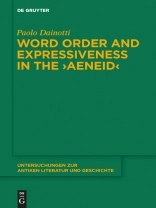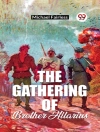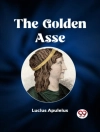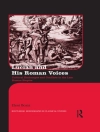When can word order be considered expressive? And what we do mean by “expressiveness”? This work, based upon a statistical and stylistical enquiry into Virgil’s Aeneid as well of other hexametric poetry, aims to answer these questions from an appropriate perspective.
Through offering a detailed analysis of selected passages, the author stresses the evident recurrence of the same figures in similar contexts and with the same stylistic effects. In this view, a rare word order as well as a relevant metrical and syntactical pattern appear to constitute a deviation from the norm stylistically motivated, that can highlight significant words or iconically stress the semantics of a passage. By combining the main notes on style from the Aeneid commentaries and the stylistic readings also applied to modern texts, the author, with a clear approach, systematically discusses the various structures of Latin hexameter – enjambement, synaloepha, hiatus, four-word lines, name-lines, relevant juxtapositions etc. – in terms of “effects”, showing how they interact and converge in the text. This introduction to Virgil’s expressiveness aims to be an effective tool for a stylistic reading of any Latin hexametric text.
Despre autor
Paolo Dainotti, Università di Salerno, Italy.












